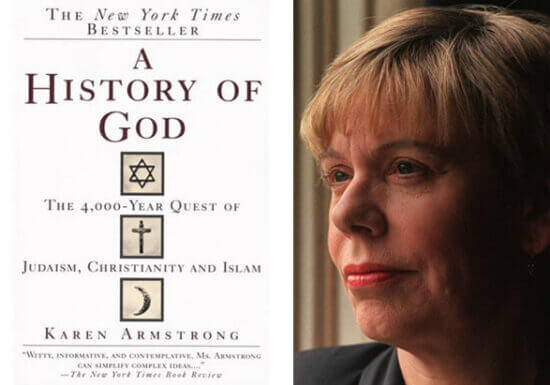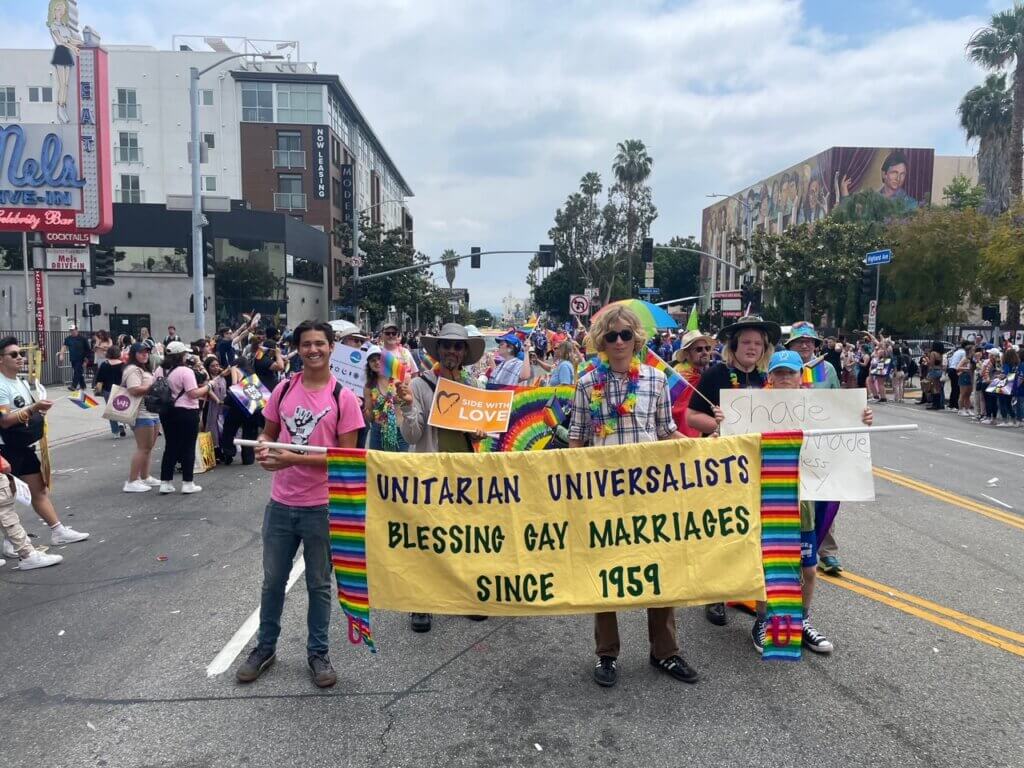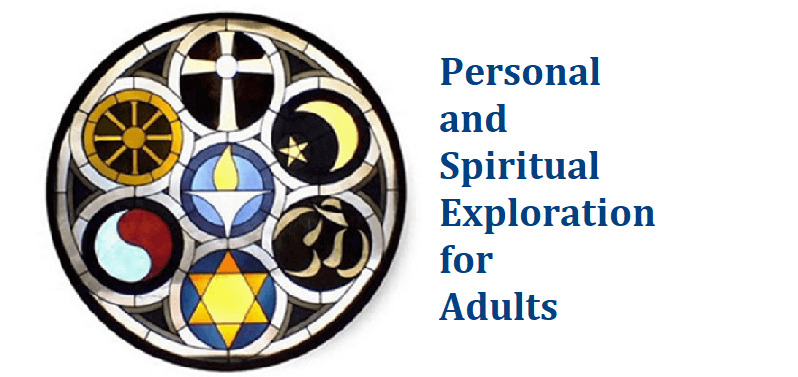The group is midway through our study and discussion of Karen Armstrong’s A History of God — and it has been a challenging journey! To be fair, the book is dense. Its brilliant author spares neither the depth of her research nor the breadth of her knowledge of the many traditions and movements that shaped the great monotheistic faiths. While it was written for a general audience, some of us are finding it to be, nonetheless, a bit academic. For one example: we found Chapter 4 on the development of the Trinity in Christianity to be particularly difficult. It can be confounding to try to understand how this concept developed and why it was so important to debates about the meaning of Jesus in the early Christian church. Yet perhaps this is unsurprising in a group of UUs? After all, the emergence of Unitarian and Universalist traditions were deeply rooted in “heresies” that sought to reform Trinitarian ideas and their implications (e.g. original sin, atonement, salvation, etc.). We’ll be digging further into these questions in upcoming chapters on how monotheism evolved through the Reformation, Enlightenment, and various scientific revolutions.
To help us along on this epic journey of history and theology, the published chapter summaries have proven helpful, and the facilitators have been spending some time during our sessions breaking down chapters into key concepts with related questions. Additionally, many of us found a History Channel documentary based on the book, featuring Armstrong and other scholars, to be extremely valuable. It’s available to view here on YouTube:
As usual, discussion has been lively and rewarding, with an opportunity not just to learn from the material but from the perspective and experiences of others. As such, and because of the challenges of the reading, the group decided at our most recent session to cover two chapters per meeting instead of three. This means that we will be adding at least one more class, likely in the New Year. If you are curious about the subject but haven’t yet participated, you are still welcome to join us. (See contact info below.)
Overall, I am struck by Karen Armstrong’s vision and dedication to this subject, and wonder if she will ultimately be regarded as a prophetic voice in her own right. Consonant with our UU tradition (and worth noting that Armstrong delivered the 2011 UUA Ware Lecture), she seeks to celebrate and build common understanding across diverse beliefs and spiritualities. In the great tradition of reform in liberal religion, she regards simplistic literalism and oppressive fundamentalism harshly. As a former nun and lifelong seeker, she does not hesitate to offer pointed critique of the Western Christianity out of which she comes: it has not recovered from a “neurotic misogyny” that comes from unhealthy and alienating ideas about original sin and sexuality.
And perhaps Armstrong should be seen as a theologian herself. A common theme in this book and throughout her other work is the idea that all human-made images and linguistic depictions of God are partial, metaphorical. The map is not the territory. “God” is always pointing to deeper meanings and mysteries about the universe and human existence that can never be fully captured by language or art. As such, God can mean many different things to different people — but our common quest for meaning is universally human, and never finished.
Next sessions: this Saturday, Dec. 4th 9:30AM, Saturday, Dec. 18th 9:30AM, and at least one more date TBD.
We are still meeting exclusively via Zoom. To join us, please contact AdultRE@uusm.org.





A wonderfully lucid article. I read this book a few years ago (along with other Armstrong titles) and now feel the urge to revisit it from a new (older) vantage point. Thank you, James!